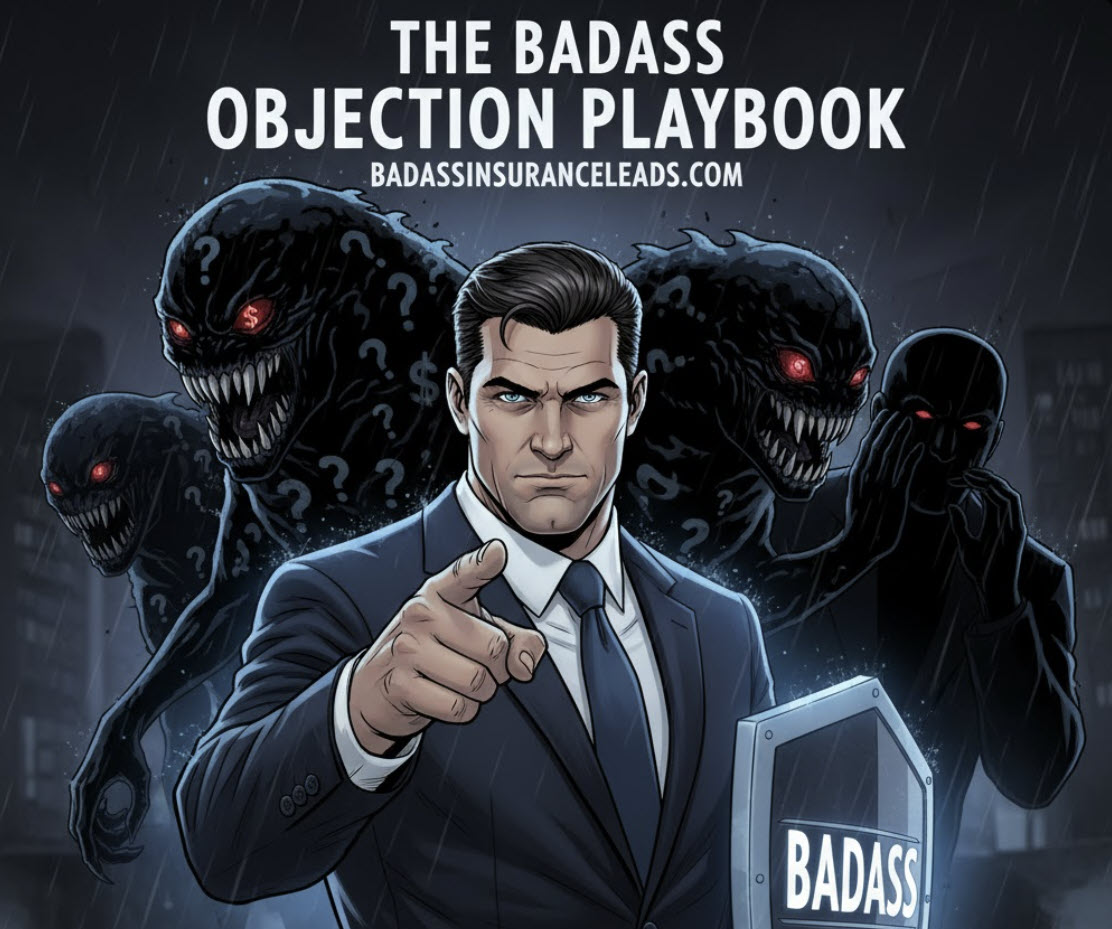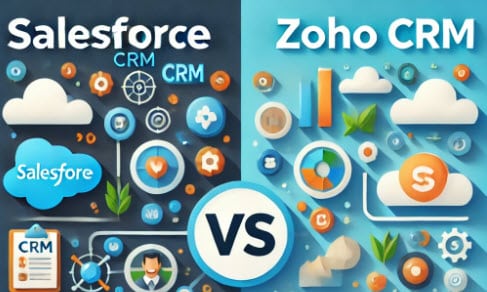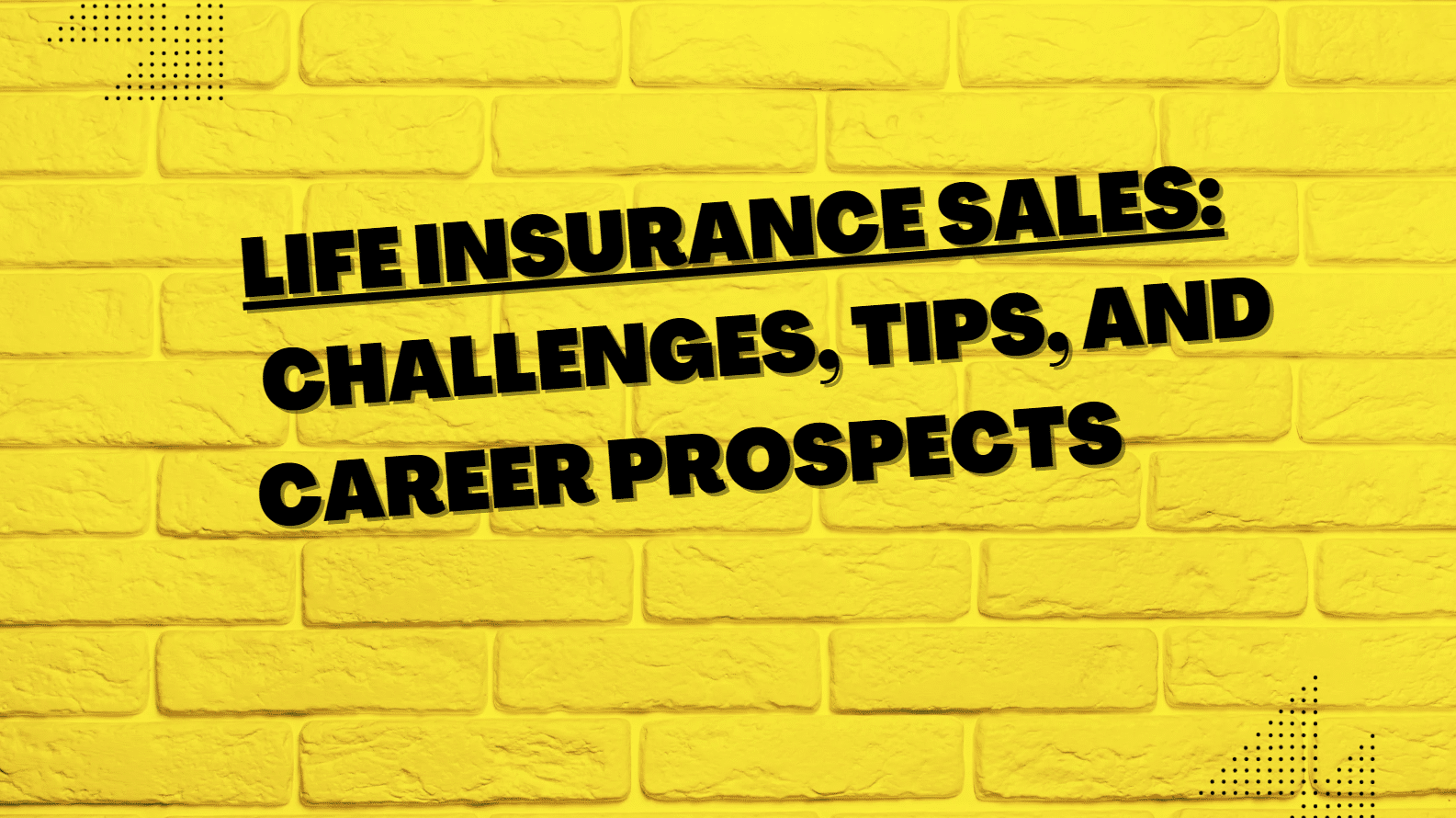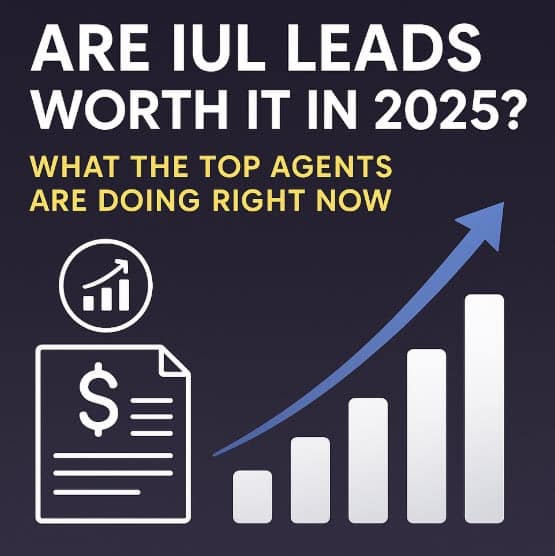
Need to Think About It” and Other Lies: The ‘Badass’ Playbook for Handling Any Objection
Every insurance agent faces them. Those moments when the conversation is flowing, you’ve delivered incredible value, and you’re just about to seal the deal… then, BAM. The objection hits.
“I need to think about it.”
“It’s too expensive.”
“I need to talk to my spouse.”
“I’m happy with my current agent.”
For many, these phrases are deal-killers. They deflate enthusiasm, make you question your pitch, and leave you wondering where it all went wrong. But not for a Badass Agent.
For the true professionals, objections aren’t roadblocks; they’re invitations. They’re a prospect’s way of saying, “I’m interested, but there’s something I’m not clear on, or a fear I haven’t voiced.” They are, in essence, confused requests for more information, validation, or reassurance.
At Badass Insurance Leads, we don’t just provide you with high-quality leads; we equip you with the mindset and the playbook to convert them. This isn’t about being pushy; it’s about being prepared, professional, and persistently valuable. It’s about understanding human psychology and guiding your prospect to the best decision for them.
Consider this your definitive guide. The one you’ll bookmark, reference, and train your team on. Because once you master objection handling, you don’t just close more deals – you gain an unshakable confidence that transforms your entire business.
The Badass Philosophy: Objections Are Not Rejections
First, let’s get one thing straight: an objection is almost never a personal rejection. It’s usually one of three things:
- A Lack of Clarity: The prospect doesn’t fully understand the value, the benefits, or how it addresses their specific needs.
- A Hidden Fear/Concern: They have an unspoken worry (e.g., fear of commitment, fear of making a wrong decision, fear of change).
- A Need for Validation: They want reassurance that they’re making a smart choice.
Your job, as a Badass Agent, is to unearth the real reason behind the objection and address it head-on, with empathy and expertise. This isn’t about winning an argument; it’s about solving a problem.
The Foundation: Acknowledge, Isolate, Overcome
Before we dive into specific objections, let’s establish the universal framework for handling any objection. This three-step process is your bedrock.
- Acknowledge: Show empathy. Validate their feeling. Don’t argue. Start with phrases like:
- “I completely understand.”
- “That’s a valid point.”
- “Many of my clients felt the same way.”This disarms them and shows you’re listening, not just waiting to pounce.
- Isolate: Determine if this is the only thing holding them back. If you solve this, will they move forward? This prevents “stacking” objections. Ask questions like:
- “Besides [this objection], is there anything else that would prevent us from moving forward today?”
- “If we could find a way to make [this concern] a non-issue, would this make sense for you?”
- “Is that your main concern?”This helps you focus your energy on the actual barrier.
- Overcome: Now that you’ve acknowledged and isolated, you can provide the solution, clarification, or reassurance. This is where your expertise shines. You’ll use specific strategies depending on the objection.
Let’s put this framework into action with the “Big 5” objections that plague insurance agents.
The Big 5: Your Badass Objection Playbook
1. “It’s Too Expensive” / “The Price is Too High”

This is the king of all objections. It’s rarely truly about the money, but rather a perceived lack of value for that money.
The Underlying Reason: They don’t see the value proposition clearly. They’re comparing raw numbers, not what they’re getting for those numbers, or what they stand to lose without it.
The Badass Response:
- Acknowledge: “I completely understand. Price is always an important consideration, and no one wants to overpay. Many clients initially feel that way.”
- Isolate: “Besides the premium, is there anything else that’s giving you pause about this coverage?” (If they say no, proceed.)
- Overcome (Focus on Value, Not Cost):
- “Cost vs. Investment”: “Let’s reframe this for a moment. This isn’t just a cost; it’s an investment in protecting your [home, family, business]. What’s the true cost if something catastrophic happens and you don’t have this coverage?”
- “What Are You Comparing It To?”: “When you say ‘too expensive,’ what are you comparing it to? Are we talking about the value of what you’re protecting, or another quote that might not offer the same level of coverage and peace of mind?”
- “The Penny Wise, Pound Foolish” Analogy: “Often, people try to save a few dollars a month, only to find out they saved themselves into a much larger problem when they needed their insurance most. My job isn’t to find you the cheapest policy, it’s to find you the right policy for your unique needs and budget.”
- Break Down the Value: “Let’s quickly review exactly what this policy covers and the specific peace of mind it provides for [their biggest concerns]. Is having [specific coverage feature] worth [small daily/weekly amount] to ensure your family’s financial security?”
2. “I Need to Talk to My Spouse/Partner”

This is often a deferral, but it can also be a legitimate need for partnership. Your job is to understand which it is and facilitate the next step.
The Underlying Reason: Could be genuine co-decision making, or it could be a polite way to end the call without committing. They might also be unsure how to present the information to their partner.
The Badass Response:
- Acknowledge: “That’s perfectly reasonable, and I encourage you to involve your spouse in such important financial decisions. It shows you’re thinking carefully.”
- Isolate: “Beyond making sure your partner is comfortable, is there any specific part of this proposal that you yourself are still unsure about?”
- Overcome (Facilitate the Conversation):
- “Help Me Help You”: “When you talk to them, what part of this do you think they’ll be most excited about? What part do you anticipate they might have questions on?” (This helps you prep them and uncover hidden objections.)
- “The Joint Review”: “Would it be helpful if we scheduled a brief call when your spouse is also available? That way, I can directly answer any questions and ensure they understand all the benefits and coverages, just like we did.”
- “Empower the Messenger”: “I can also send you a concise summary of our discussion and the key benefits we’ve covered, specifically highlighting [their main concerns solved], which you can easily share with your spouse. What’s the best email for that?”
- “What’s the Next Step?”: “When do you think would be a good time for us to touch base after you’ve had that conversation?” (Always set the next appointment!)
3. “I Need to Think About It” / “Let Me Get Back to You”

This is a classic smokescreen. It almost never means they actually need more time to think; it means you haven’t closed the loop or addressed an unstated concern.
The Underlying Reason: Fear of commitment, an unvoiced objection, a desire to compare further, or they simply don’t see enough urgency or value to act now.
The Badass Response:
- Acknowledge: “I completely understand the need to think things through. This is an important decision.”
- Isolate: “When you say you need to ‘think about it,’ what exactly are you planning to think about? Is it the coverage itself, the premium, or perhaps something else entirely that’s on your mind?” (This forces them to reveal the real objection.)
- Overcome (Uncover & Create Urgency):
- “The Unspoken Concern”: “Often, when people say they need to think about it, there’s usually one or two small things they’re still mulling over. Could you share what those might be? I might be able to clarify it right now.”
- “What’s Missing?”: “Have I left any questions unanswered? Is there any information you feel you’re missing to make a confident decision right now?”
- “The Urgent Opportunity”: “I understand you want to be sure, but sometimes delaying can mean missing out on current rates or available coverages. What if we could take care of the paperwork now, while everything is fresh, and you have peace of mind immediately?”
- “Worst Case Scenario”: “What’s the worst that could happen if you don’t make a decision on this today, and [specific unfortunate event] occurs tomorrow?” (Use with caution, but it can be powerful for highlighting risk.)
4. “I’m Happy with My Current Agent/Company”

A comfortable prospect is a tough one to move, but “happy” doesn’t always mean “best protected” or “best value.” This objection requires gentle persuasion and highlighting potential gaps.
The Underlying Reason: Complacency, loyalty, fear of change, or they genuinely believe their current situation is optimal. They might also not understand what they don’t have.
The Badass Response:
- Acknowledge: “That’s fantastic to hear! Having a good relationship with your agent is really important, and I’m glad you’re happy with your current coverage.”
- Isolate: “Just out of curiosity, if you could change one thing about your current insurance situation, what would it be?” (This looks for a crack in the “happy” facade.)
- Overcome (Introduce the “What If”):
- “The ‘Second Opinion’ Angle”: “I’m not here to tell you your current agent isn’t doing a good job. Think of me as offering a complimentary ‘second opinion’ – a way to ensure you’re not missing out on better coverage options or potential savings that might be available now.”
- “The Evolving Market”: “The insurance landscape changes rapidly, with new discounts and coverage innovations emerging all the time. My specialty is making sure clients like you are always getting the best possible value in today’s market. Would you be open to a quick, no-obligation comparison just to see?”
- “A True Comparison”: “Most of my best clients were ‘happy’ until they realized they could get significantly more coverage for less, or find crucial gaps in their existing policies. I’m confident I can show you something you’re currently missing.”
- Focus on Value Beyond Price: “It’s not just about the premium, is it? It’s about how quickly claims are paid, the service you receive, and truly understanding what you’re covered for. We pride ourselves on [mention a specific differentiator of your agency].”
5. “I’m Not Interested Right Now” / “Just Sending Me Information”

This is often an early-stage objection, indicating they’re either busy, skeptical, or don’t yet grasp the potential benefit of engaging with you.
The Underlying Reason: They’re busy, distracted, have a preconceived notion about sales calls, or don’t perceive an immediate problem your solution can solve.
The Badass Response:
- Acknowledge: “I completely understand. You’re busy, and insurance isn’t usually top of mind until you need it.”
- Isolate: “If you don’t mind me asking, when you filled out the request for information on , what was the main thing you were hoping to achieve or find out?” (This helps pinpoint their initial motivation.)
- Overcome (Quick Value, Re-Engage, Set Micro-Commitment):
- “The 30-Second Drill”: “I respect your time, so let me just ask you one quick question to see if this is even worth your while. If I could show you how to [specific benefit like save money, get better coverage, simplify your policies] in just the next few minutes, would you be open to hearing about it?”
- “What Triggered the Interest?”: “I appreciate that. When you initially reached out or clicked on our ad, there was something that caught your eye, right? What was that something?”
- “Information with Context”: “I can certainly send you information. But without a quick conversation, it’s just numbers on a page. I can quickly tailor that information to your exact situation in about two minutes. Would that be helpful?”
- “Solve Their Implicit Problem”: “Look, the reason most people request information on is because they’re worried about [common pain point]. My job is to see if I can solve that for you quickly and effectively. Give me 60 seconds.”
The Badass Objection Handling Cheat Sheet
Here’s a quick-reference table summarizing our “Badass 3-Step Process” for the most common objections:
| Objection | Acknowledge (Empathy) | Isolate (Find the Root) | Overcome (Badass Action) |
| “It’s Too Expensive” | “I understand. Price is important.” | “Besides the premium, is there anything else holding you back?” | Reframe as investment, compare value, highlight cost of not having coverage. |
| “Need to Talk to Spouse” | “That’s perfectly reasonable.” | “What do you anticipate they’ll be most curious about?” | Offer joint call, summarize key points for their discussion, set firm follow-up. |
| “Need to Think About It” | “I understand the need to reflect.” | “What specific aspect are you planning to think about?” | Uncover hidden objection, address immediately, highlight urgency/opportunity. |
| “Happy with Current Agent” | “That’s great to hear! Loyalty is important.” | “If you could change one thing about your current insurance, what would it be?” | Offer a “second opinion” review, highlight market changes/new options, emphasize your unique value proposition beyond price. |
| “Not Interested / Send Info” | “I understand, you’re busy, and insurance isn’t usually top of mind.” | “When you initially inquired, what were you hoping to find out or solve?” | Offer a quick, tailored value proposition (30-60 seconds), re-engage with their original motivation, explain why a conversation is more valuable than just generic info. |
The Ultimate Objection Handler: YOU!
Remember, the best playbook in the world is only as good as the player. Your confidence, tone, and genuine belief in the value you provide are your most powerful tools.
- Practice: Role-play these scenarios. The more you practice, the more natural and authoritative you’ll sound.
- Listen: Really listen to your prospects. The answers to their objections are often hidden in their own words earlier in the conversation.
- Persistence (Not Pushiness): A Badass Agent understands that persistence is a sign of belief in their product and a commitment to helping the client. It’s not about forcing a sale; it’s about making sure they make the best decision.
Objections are a fundamental part of sales. They are opportunities to strengthen your relationship, clarify your value, and prove your expertise. Embrace them, master this playbook, and watch your closing rates soar.
Ready to turn more of those “I need to think about it” moments into “Yes, let’s do it!”? Our leads are waiting for your Badass approach.






